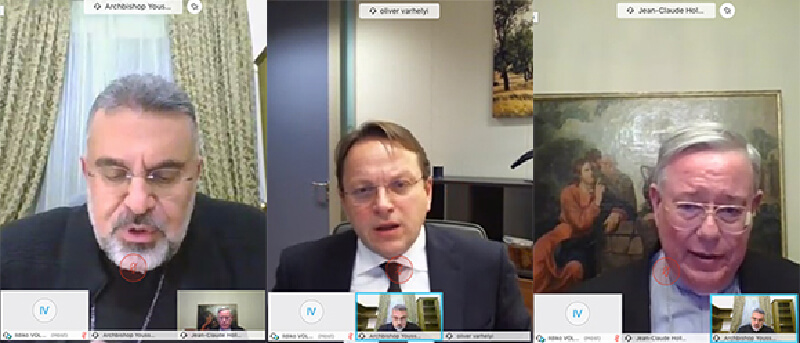BRUSSELS (Reuters) – EU antitrust regulators have sought information from advertisers regarding Google’s advertising technology practices, a European Commission document seen by Reuters shows.
Alphabet-owned Google, the world’s largest online search engine, has been hit with fines totalling 8.25 billion euros ($10 billion) in the last three years for blocking rivals in online shopping, Android smartphones and online advertising.
It now faces two European Union investigations into its advertising practices, focused on technology and data.
Google and Facebook together capture over half of the internet ad sales market globally. Both companies are currently the target of a U.S. lawsuit over their 2018 deal which gives Facebook’s advertiser clients the option to place ads within Google’s network of publishing partners
Google said it was cooperating with the Commission, whose 13-page questionnaire sent to advertisers this month asked about the impact of using the default setting ‘Include Google Display Network’ introduced in 2018 for search campaigns on Google Ads.
“We compete with many others in the industry and give people granular controls over how their information is used to personalize ads and limit the sharing of personal data to safeguard people’s privacy,” a Google spokeswoman said.
The Commission said the questionnaires are part of its investigation into Google’s data usage.
“This investigation covers all services of Google, including digital advertising and the ad tech chain,” the EU competition enforcer said on Wednesday.
The EU also wants to know if advertisers receive rebates when they use Google intermediaries which allow advertisers or media agencies to buy advertising inventory from many sources.
The questionnaire also asks whether the ability to access Google’s YouTube is tied to the selection of an intermediary.
It asked if Google’s integration in 2018 of its online ad delivery unit DoubleClick impacted advertisers as well as any imminent impact from its plan to phase out third-party cookies on the Chrome browser by the end of 2022.
Advertisers have until Friday to reply to the questionnaire, which was first reported on by Politico.
Reporting by Foo Yun Chee; Editing by Alexander Smith









![Jews: Nation or Religion? – Phantom Nation [audio] Jews: Nation or Religion? – Phantom Nation [audio]](https://i2.wp.com/www.jewishpress.com/wp-content/uploads/israel-4426387_1280.jpg?w=696&resize=696,0&ssl=1)




